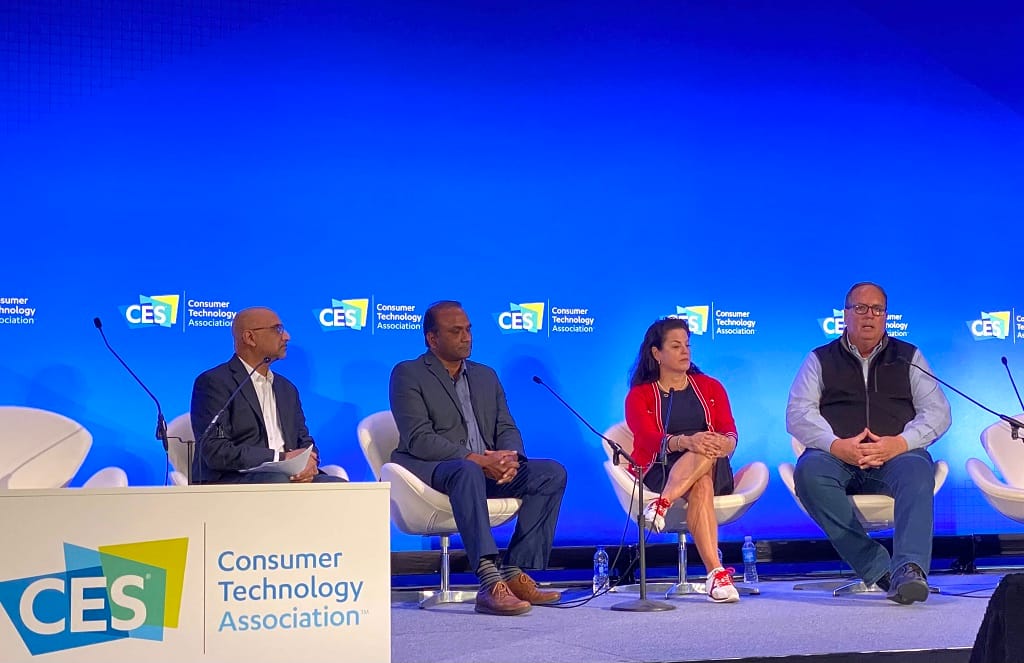CES 2022: Public-Private Partnerships Key to Building Smart Cities, Tech leaders Say
Public-private partnerships will increase the community benefit of infrastructure projects, leaders at Qualcomm and Verizon said.
Justin Perkins

LAS VEGAS, January 12, 2022––Telecommunications industry leaders said Friday at the Consumer Electronics Show that public-private partnerships will pave the way to realizing the future of smart cities.
Raymond Bauer, director of the domain specialist group that connects governments to Verizon’s telecommunications services, said the government needs private partners to improve its infrastructure efforts.
Referencing the recent passage of the Infrastructure Investment and Jobs Act, Bauer said governments should look forward to partnering with private technology companies to improve upcoming infrastructure projects.
“There’s a once in a lifetime opportunity from IIJA,” Bauer said. “We should find common ways to work in a way we haven’t in the past. There are certain goals and use cases to leverage the infrastructure we have,” he said.
The $1.2 trillion bipartisan legislation funds physical and digital infrastructure projects, including $65 billion for the expansion of broadband across the country.
Bauer said communities have a chance to monetize the services Verizon offers to communities if Verizon builds infrastructure for broadband access in underserved areas. “By bridging the digital divide, underserved communities get the services they need,” he added.
Ashok Tipirneni, head of smart cities and connected spaces at Qualcomm, said that cities should be thinking about how technology can improve much-needed infrastructure projects.
“Cities are growing faster than available utility,” he said, citing global issues of housing, water, and equity for vulnerable populations. “How do we ensure access for all citizens? And how can cities be in lock step with new technology, whatever it is?” he asked.
Qualcomm’s Smart Cities Accelerator Program delivers internet of things ecosystem products and services to member cities and local governments.
“New Orleans, Miami, and Los Angeles has local governments asking how they can do better,” he said. “They offer opportunities for partnerships that wouldn’t have been the case a few years ago.”









Member discussion